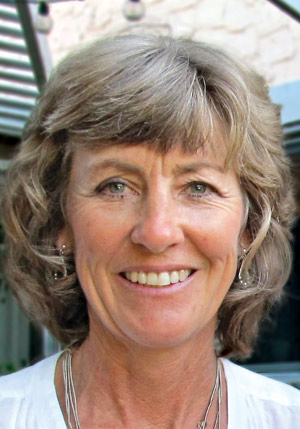
Melissa Hansen
It’s a new era for viticulture and enology research in Washington.
Washington’s wine industry has started the process of building a world-class research program.
The industry has invested in a new wine science facility, developed a strategic plan and recently hired me, the Washington Wine Commission’s first-ever research program manager.
The state’s growers and wineries took a major step to support research when they pledged $7.4 million for construction of Washington State University’s Ste. Michelle Estates Wine Science Center at the Tri-Cities campus.
But a successful research program is more than a shiny building with the latest technological trappings; it requires cohesive effort between industry and researchers, is guided by industry stakeholders and managed professionally, has clear priorities and is well funded and communicated.
All of these components are contained in the Strategic Research Plan for the Washington Wine Industry, a 53-page document based on direct input from the industry and developed for the Wine Commission by 501 Consultants.
The plan, which took many months to develop and involved a cross-section of wine industry members, serves as my roadmap to guide the Wine Commission in growing the industry’s research program.
Major goals of the plan are to establish the research process, define the research focus, create the research structure, sustainably fund research and share research findings.
I joined the Wine Commission last November after spending nearly 20 years writing technical grape and tree fruit stories as associate editor for Good Fruit Grower.
Previously, I was the first research director for the California Table Grape Commission and helped build their research program.
My new responsibilities are to manage the wine industry’s annual research review and recommendation process and implement goals of the strategic research plan.
My technical communication skills and research management background will be valuable as I implement the goals of the strategic research plan.
Viticulture and enology research in Washington has a long history. At WSU, it has been funded since the early 1980s by a small portion of the state wine sales tax (1/4 cent per liter), thanks to legislation sponsored by Washington Sen. Max Benitz of Prosser.
The legislation included language stipulating that an industry group guide the annual funding of the research.
That group is the Wine Advisory Committee — a subcommittee of the Wine Commission comprising volunteer growers and winemakers.
The Wine Advisory Committee helps set research priorities, annually reviews research project requests and makes funding recommendations to WSU via the Wine Commission.
Additionally, industry visionaries who crafted the Wine Commission’s enabling legislation in 1987 included research within the organization’s scope of activities.
Research projects at WSU are funded from several pots of money, including the wine sales tax, contributions from the Auction of Washington Wine, allocations from the state budget to WSU for wine research, and the Wine Commission. In recent years, about $850,000 has been spent annually on viticulture and enology research.
The current research program has been effective. As a result of WSU viticulture and enology research, growers have used irrigation strategies to improve grape quality and learned how to assess winter and frost damage and manage vines for cold hardiness.
Research has helped winemakers better understand how tannins develop in the vineyard, how to reduce wine spoilage and more.
Now it’s time to elevate, expand and broaden industry involvement in the research program. Washington’s wine industry has reached critical mass after experiencing rapid and significant growth in the past decade — nearly 500 new wineries and 20,000 acres were added in that time frame.
Today, the state has more than 890 wineries bonded, and industry officials estimate there are more than 50,000 acres of wine grapes.
New challenges from emerging pests and diseases, like brown marmorated stinkbug and red blotch disease, threaten wine quality and long-term profitability. New and inexperienced winemakers need information to help them produce premium wines.
Improve communication
One of the biggest opportunities identified in the strategic plan was in the area of communication and the need to improve communication about research.
The work that the Wine Advisory Committee does is an example of the need for better communication.
For nearly 35 years, this hard-working volunteer group has quietly done its business and spent thousands of hours deciphering research reports. Few other than WSU’s wine researchers know about this group.
In the past, the committee was not supported by full-time staff at the Wine Commission, and coordination of committee activities was outsourced to 501 Consultants.
One of my immediate duties is to shine a light on the important work done by the Wine Advisory Committee and improve the process and transparency of research review process.
A new research section on the Wine Commission’s website (www.washingtonwine.org) will include an overview of the wine industry’s research program, information about the review committee, narrative stories that highlight the value of research and published research results.
I will use various formats to communicate measurable successes of Washington’s research program, including trade publications like Good Fruit Grower, e-newsletters and social media.
In July, the Wine Commission will sponsor a new event for growers and winemakers to share research called Washington Advances in Viticulture and Enology (WAVE).
In the short-term, my goals are to increase awareness and demonstrate the importance of a strategic research program.
If I’m successful, once the industry’s Wine Science Center commitment is paid off in a few years, growers and wineries will support using those assessments to grow the research program.
I welcome your input as we grow the industry’s research program into one that’s envied by wine regions around the world. It’s a new day for wine research in Washington.
– by Melissa Hansen, research program manager for the Washington Wine Commission. She can be reached at mhansen@washingtonwine.org. •






Leave A Comment